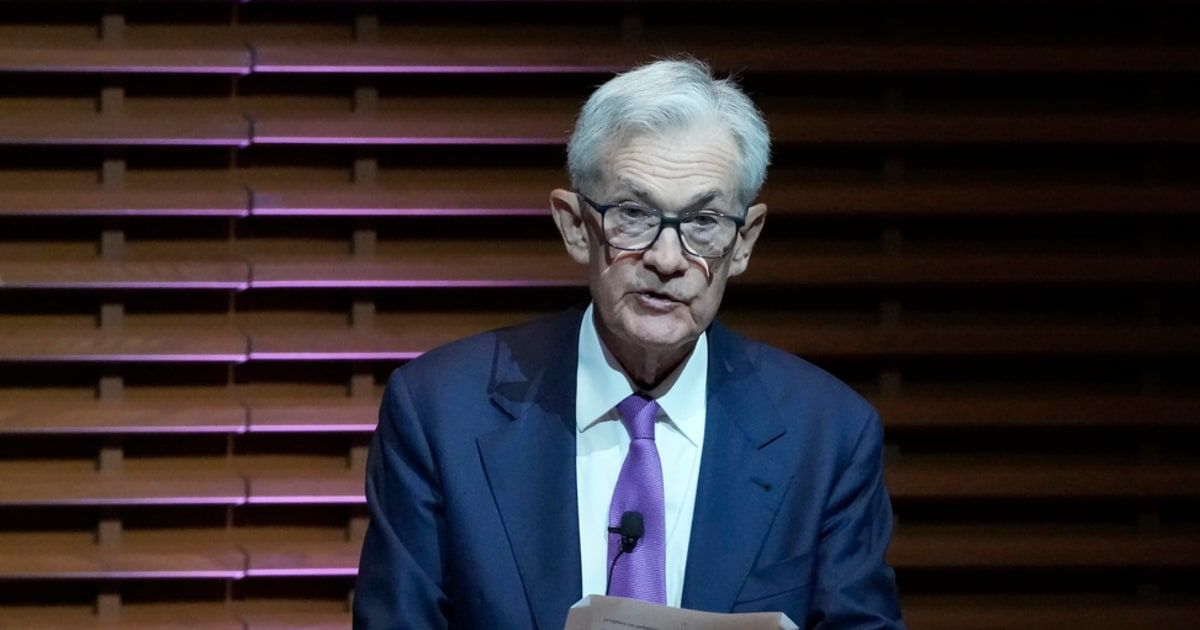A closed commercial premises in the center of Madrid.Olmo Calvo
They were here before the virus started killing people and they have become strong in the economy.
Zombie companies - there are half a dozen definitions depending on who formulates them - which are essentially firms with negative profitability, low credit or stock market valuations, little productive and highly indebted that for some reason resist dying over the years, they can be the nightmare of the post-pandemic future.
Because they neither fall into the hands of competitors nor are they capable of paying, with the scarce resources they generate, the interest on their debts.
The Bank for International Settlements (BIS) has warned that, if measures are not taken, this will be its great moment, with desperate governments injecting liquidity so that the social house of cards does not collapse.
It is not a new phenomenon: its space in the economy has widened in recent decades.
If at the end of the eighties it was calculated that 4% of listed firms in rich countries were in this weak situation, the living dead reached 15% in 2017, according to a report by the agency published this September.
Next December it will be a year - it seems that a decade has passed - of the presentation by the Governor of the Bank of Spain, Pablo Hernández de Cos, of a study that claimed that only 8% of Spanish companies were in this situation ( vs. 16% in 2013).
The post-Great Recession recovery, which brought about rapid deleveraging of the private sector, appeared to have worked a miracle despite the IMF often warning Spain on this issue.
Pandemic in between, in one of its latest newsletters the national regulator has seen how the percentage of companies with negative profitability has gone from 28% in January to 39% in June 2020. The alarms have been triggered again, although This does not necessarily mean that four out of ten companies are zombies, as they may be at a temporary loss.
Juan Fernández de Guevara, from the Valencian Institute of Economic Research (IVIE), has studied the issue carefully and recalls that these "unprofitable" companies now have a 57% chance of remaining in the tail group next year.
In the 2008-2016 period, that percentage was 34%.
Structural problem
The starting point was already gloomy: “A quarter of Spanish firms were in losses before lockdown.
There is a structural problem of lack of profitability.
It occurs in companies of all sectors.
They are usually small, because microenterprises dominate the national fabric, but there are also medium or large ones ”, he recalls.
It is not a minor issue.
The apocalypse of the undead makes the economy carry a heavier backpack and recover worse.
“It is as if he had sclerosis: resources continue to accumulate in the hands of inefficient companies.
It is important that the zombies leave the market because otherwise the so-called creative destruction does not occur.
The economy improves when the bad guys leave. "
The anatomy of these corporate zombies differs significantly from healthy companies, according to various studies.
In addition to being smaller, they grow less in terms of assets and employment, they spend less on physical capital, they do not innovate, and if they are listed on the markets, they issue more shares compared to other companies.
Now the circumstances exist for new zombies to join the previous squad.
The Economist
illustrated this a few weeks ago with a piece of information: high yield issues soared in the first half of the year: the 292 billion raised in the United States between January and August exceed the amount issued in all of 2019. Those bonds they generate high profitability because the corporations that issue them have a very high risk of not being able to meet the interests.
And in a world awash in liquidity, until now that was no problem.
Until now.
As Raymond Torres, director of the Funcas Coyuntura points out, the debate was there on account of a too lax monetary policy and the pandemic has strengthened it.
"Before the covid there were companies with large debts that far exceeded the value of their assets, but that could be kept afloat by low rates."
Now these companies, he continues, are receiving aid in the form of liquidity and to sustain employment.
But his encephalogram is still flat.
The truth is that all governments have taken measures never seen before, and some are the best food for the undead.
It is true, as the dozen experts consulted agree, that this was the only way to navigate in the early stages of a pandemic that forces us to choose between the bad and the worst.
But what a few months ago was going to be a conjunctural situation with a rapid recovery in V is becoming gangrene with new confinements that are beginning to infect the markets.
Furthermore, the resources to contain the situation, although abundant, are not unlimited.
"The delicate task is how to shore up businesses that would be viable in less extreme circumstances while, at the same time, failing to protect those that are already weak and unproductive," the BIS report describes.
As Fernández de Guevara graphically explains, it is like trying to “make the circle square”.
Economist Moisés Martín believes that there are tools to facilitate less traumatic closures of unviable companies and use that money in promising companies.
To begin with, it recommends “taking into account the entire value chain” and not abandoning entire sectors, such as tourism, because in the medium or short term they will be in serious trouble.
Rather, it advocates a thorough analysis of projects that avoids mere income support.
But to go to war you need weapons and, as Raymond Torres recalls, Spain does not have a public bank with enough capillarity to know where the state funds arrive.
That is why you are having to draw on the knowledge of commercial banking.
ICO lines
The example is the ICO lines: it is the banks that decide, within parameters defined by the granting order, to whom the 78,689 million euros in committed guarantees and 103,544 million euros of new financing provided by the agency until September 30.
Aid that, in order to be granted explicitly, excluded companies that before December 31, 2019 were in crisis, were in bankruptcy or were listed in the Banco de España register of defaulters.
That in theory.
The regulator himself acknowledges in a report made public last Tuesday that access to credit has been extraordinarily relaxed in Spain with the pandemic.
From AFI, Pablo Mañueco, managing partner of Corporate Finance, corroborates this: "The perception we have is that companies that were in a situation of a certain financial imbalance have accessed the aid."
Which puts the focus again on banks, the true support of zombie companies, in the opinion of Carlos Martínez, from the CC OO Research Service.
“Banks have been granting refinancing to companies that are not viable.
Why do they do it?
In order not to provision (delinquent credits).
By contrast, our banks are the least capitalized in the eurozone.
Neither the directors nor the regulator are doing their job, they have to accustom their shareholders to the fact that they have to act by recapitalizing, and not taking out dividends.
Because if the banking system is not strong it is playing with the taxpayer's money, because ultimately it expects a rescue ”.
Martínez is very critical of the existence of zombie companies, because, remember, they have no economic logic and in situations like the current one they draw funds from those that are competitive, although they may not be solvent at the moment.
In another sense, Marcel Jansen, from Fedea, expresses himself, who does not agree with the fact that the focus should now be placed on zombies and yes on the stinginess of a government that, proportionally, is deploying less public aid than its European partners.
“In Europe they are investing a lot to avoid insolvencies.
Just look at the huge injections from Germany into their companies.
It is very important not to drop solvent companies, and it seems to me that Spain is not doing enough, but the difficulty is how to identify these companies ”.
Again, it's about choosing between the bad and the worst.
"If this situation persists, many will be on the tightrope, and that can infect the banking sector because there will be a critical rise in defaults, which can ultimately lead to a big problem."
As with covid, the chain of infections must be tracked and stopped.
Jansen does think that the Bank of Spain is "very vigilant", and that the national banking system "has learned its lesson and has entered this crisis with a lower level of indebtedness, unlike the public sector, which did not do its homework. .
It is not trivial that the Bank of Spain is emphasizing the need for reforms.
We will have to be stricter than in the first phase of the crisis, we cannot continue ad infinitum injecting huge amounts of resources into unviable companies and jobs, but obviously we can do more for an orderly adjustment.
We have to find a reasonable balance between the need for support and the risk of temporarily preserving insolvent companies ”.
The sector also has its own opinion.
In an email, Olga Gouvella, from BBVA Research, argues that banks should support their clients, "that's what they are doing."
He considers that the fundamental thing now is to know how to distinguish if a company is not viable temporarily or forever, “and what debt is sustainable and not sustainable.
A company may not be viable with a certain level of debt, but with another ”.
He believes that it is very important to establish policies "that reduce automatisms and that may lead to the closure of companies", and speaks of the "benefit of the doubt", so as "not to accentuate the negative impact of the crisis and preserve the operation of companies and jobs of work".
It also calls for laws "to speed up debt restructuring or to facilitate the recapitalization of small companies."
As Gouvella thinks, there are more reasons that make zombies difficult to kill.
Dissolving a business can often cause more headaches than starting one.
The cost in reputation, dismissals, long legal procedures ... A report from Crédito y Caución puts 21,356 companies dissolved in Spain since January.
They are much less (-15%) than those that disappeared last year.
And far fewer than are believed to actually die.
The freezing of the economy has brought what, from the Registry of Forensic Economists (Refor), its secretary Alberto Velasco defines as the "mirage" in the order for payment procedure.
The suspension of the obligation, decreed by the Government, that companies file bankruptcy when they cannot meet their debts.
A moratorium that will be in force until December and that other countries have also adopted: "There are situations and situations, and it is logical that flexibility be given in these circumstances, but the inertia in Spain is that things are always left for last", he reflects Velasco.
Along these lines, Guillermo Prada, head of financial appraisal at Prada Gayoso and insolvency expert, thinks: “When the company is not viable, there is no point in waiting” to end it.
Of course, now, he points out, "it is much easier to reach agreements" with creditors or with banks.
Gayoso recommends keeping a strict control of vital signs (treasury, maturities) to anticipate what is coming.
And establish a fluid dialogue with suppliers.
Even so, a wave of insolvencies is expected from the second half of 2020, which is when the grace period for financing supported from the ICO ends.
Valentín Pich, president of the Council of Colleges of Economists, said it a few days ago: “The courts have not detected an increase in competitions, they are in the freezer.
The thaw will be more or less violent as the financial aid to the sectors is specified.
Everything is going to depend a lot on aid ”.
And, of course, that the health horizon is cleared.
Tackling a problem with many faces is not going to be easy, but it is not impossible either.
Japan's experience in the 1990s may point the way to what not to do now.
The so-called "lost decade" was the consequence of a collapse in prices at all levels as poorly regulated banks insisted on subsidizing a part of the economy that was isolated from global competition.
That caused the zombies to bite their healthy rivals by spreading the poison.
A logical solution is that in a global recession such as the current one, the “natural” selection of the economy works by eliminating companies that are not efficient.
But that transition must be gradual.
Another option is for lenders, including governments, to bear the losses on the loans they guaranteed, or to be more selective when injecting next stimuli.
Rational credits
In any case, as Enric Serradell-López, professor of Economics and Business Studies at the UOC, abounds, the problem is structural due to the lack of strategic vision of companies that think they do not need to open up, grow, diversify or innovate.
And of a productive system with serious training deficiencies that has no choice but to leave it in the hands of the banks to be the transmission belt of aid.
"The banks have made an effort to professionalize the allocation of credit, they are more rational and objective," he believes, and they will play a fundamental role in helping 3.4 million companies and freelancers succeed in the best conditions.
"Let us not forget that it is necessary to have SMEs, which channel jobs.
If they don't work, the country doesn't work ”, he recalls.
It is, in short, a difficult challenge in a world that nobody expected.
"We have two popes, two kings, negative interest rates ..., if they tell us a few years ago we will not believe it," he jokes.
The 10,000 million manna
Are they zombie airlines?
Does the government have to help companies like Air Europa?
With trips frozen in half the world, questions are piling up around the fund that SEPI has endowed with 10,000 million euros to "support the solvency of strategic companies."
It is a line intended for large companies (the minimum request is 25 million) that demonstrate its viability in the medium and long term.
Among the wide variety of tools of this instrument, the Government includes participating loans, convertible debt, subscription of shares or social participations or any other capital instrument, with which in practice the State could become a shareholder of the same.
Italy, for example, has begun the nationalization of Alitalia after successive bailouts.
In Spain, one of the first to request 400 million has been the airline chaired by Juan José Hidalgo.
Few dare to predict whether an eventual rescue will do any good because the uncertainty about the sector is maximum.
Juan Fernández de Guevara, points out that years ago the EU urged to combat excess capacity in the air.
“What should be its optimal dimension in the post-covid era?
Working groups should be created to determine it.
Policies for reconversion of sectors if the crisis is going to last, in addition to being a sectorial one, it will have to be approached from a regional perspective because it will not affect Madrid, Castilla-La Mancha or Valencia equally ”.
From Fedea, Marcel Jansen warns that many citizens may become suspicious of the objectivity of this type of aid if they are not completely transparent and based on technical criteria.
The few candidates for the Sepi fund that have been made public do not invite great optimism.
This is the case of Duro Felguera, the Asturian engineering company that in recent years has lived in a comatose state trying to straighten out its course.
Or Celsa, whose debt exceeds 2,500 million euros and is mired in a war with creditors.
Catalan SMEs: "We are in a boat adrift"
This Tuesday, before the Generalitat ordered the closure of bars and other measures to reduce social contact due to the rise in contagion, a string of Catalan business entities sat (virtually) in a forum to seek solutions to their abrupt fall in exercise.
“Nissan has been one of the companies that have decided to close.
But there are others, within important sectors, that are in a serious situation, "they warned.
The message they sent to the administration was very clear: "The aid must be given with the greatest transparency."
In the words of Paco Camarasa, secretary of Acede, Associació Catalana d'Executius, Directius i Empresaris, the administration should be more selective to ensure that funds go where they should go.
"Companies that were already going through very delicate moments before the covid have accessed the ICOs, and in the end it is a drama, because they should not have been able to access these lines and in this way they will generate a greater problem."
Camarasa fears that European aid from the reconstruction fund "as always, will end up in the hands of large companies."
And he denounces the absence of an economic strategy to overcome the pothole.
“There is not, neither economically nor healthily.
We are in a boat adrift ”.
Among their demands is that a change be imposed so that banking entities, in their risk analysis, make the quality of assets weigh more over quantity.
They also demand that legislative changes be promoted so that mergers between companies are carried out more easily.
A solution that could prevent numerous bankruptcies in the future.









